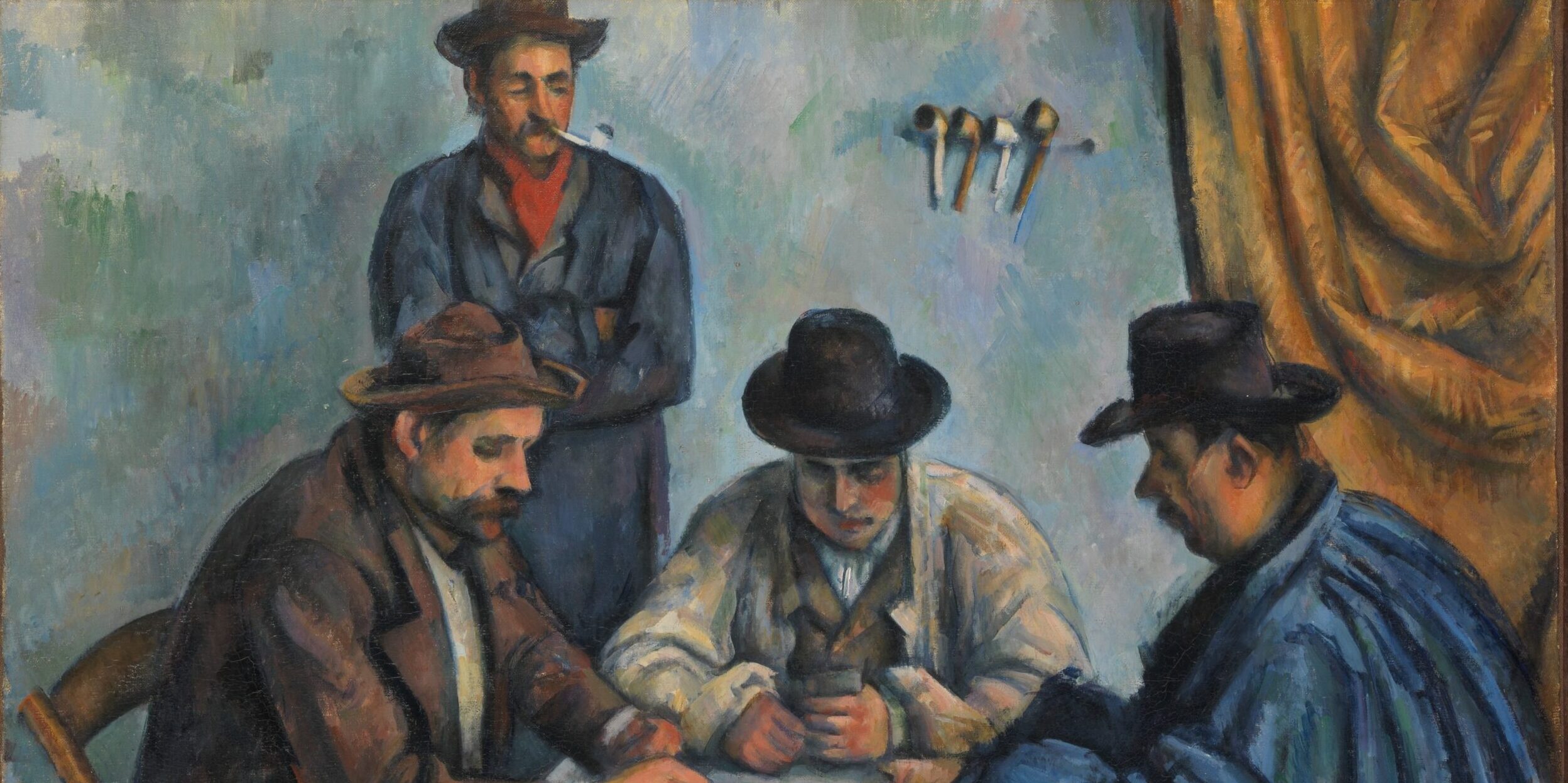
The Card Players by Paul Cézanne, 1890–92
Friendships are among the most enriching relationships in our lives, but building and maintaining close friends can be surprisingly challenging. Many adults find it hard to make new friends outside of school or college, especially in an era when work or other responsibilities limit social opportunities. Despite these challenges, strong friendships are incredibly important – they contribute to our happiness, mental health, and even physical well-being. In fact, research shows that people with solid social connections tend to have greater life satisfaction, higher self-esteem, and even live longer, healthier lives [1].
Beyond the subjective joy and comfort, friendship offers concrete mental health benefits. One study notes that friendships stimulate the brain’s reward system and motivational processes, essentially nourishing our psychological development. People with close friendships are generally less prone to loneliness and may have lower levels of anxiety and depression [2]. Unlike other relationships that we don’t choose (our family or coworkers), friendship is a bond we consciously cultivate – and that mutual choice to be in each other’s lives is powerful. When you invest time and care into a friendship, you’re building a reciprocal support system: your friends help you through hard times, and you do the same for them, enriching each other’s lives.
Several factors make meaningful friendships harder to come by in adulthood. When conflicts arise between friends, they are more likely to drift apart or “ghost” each other rather than actively work through issues, whereas romantic couples might seek help or have explicit talks to fix problems. The lack of defined expectations means friends can go weeks or months without contact and still consider the friendship intact – a level of intermittent contact that would spell trouble in most romances. This flexibility can be a double-edged sword: it allows friendships to survive lapses in communication, but it also makes it easier to neglect them.
Modern adult life also presents practical hurdles. After school and college, the natural social environments where friendships form (classes, dorms, clubs) diminish. Many adults are busy with careers or family, and the rise of remote work means fewer casual interactions with new people. It’s common to hear someone ask, “How do I make friends as an adult?” because traditional avenues shrink over time. Despite the difficulties, it’s worth remembering that you’re not alone in finding friendship hard. Many people struggle with it, and it’s not a personal failure. The social landscape changes as we get older, but with awareness and effort, one can overcome these hurdles.
Trust is the bedrock of intimate friendship. We trust close friends to respect our confidences, to be honest yet kind to us, and to have our best interests at heart. Building this trust takes time – often through many small moments where friends demonstrate reliability and empathy. It also requires mutual vulnerability: when you open up about something personal and your friend responds with understanding (rather than judgment), it strengthens the trust between you, inviting them to share as well. Over time, a close friendship develops its own language of intimacy – inside jokes, shared memories, a knowledge of each other’s quirks and dreams. This level of comfort is what allows friends to provide that sense of “I’m not alone” which is so crucial for mental health.
Once you’ve begun meeting new people and a few connections start to click, it’s time to shift from finding friends to growing friendships. The good news is that despite the challenges, friendships can be strengthened, and new friends can be found at any age. It often takes intentional effort, but the rewards are well worth it. Making new friends usually starts with stepping outside your routine. Say yes to meetup groups, adult classes, local sports, or a friend-finding app. Follow up after a good chat, invite the person for coffee or a walk and keep the momentum going. Friendships deepen with shared time, so schedule regular catch-ups, send quick check-ins, and don’t worry if some prospects fizzle; the goal is to keep giving yourself chances to click with people who feel right.
Once a bond forms, nurture it: talk openly, address small misunderstandings before they grow, and show up when your friend needs support. Reliable gestures – remembering birthdays, listening without judgment, celebrating their wins, signal trust and care. At the same time, respect differences and boundaries; give introverted friends space, honour values that aren’t your own, and avoid prying. Balancing closeness with respect keeps the relationship comfortable and helps it thrive over time.
Finally, remember that friendships evolve, and that’s okay. Not all friendships will last forever, and some might shift in closeness over time. Life changes like moving cities, getting married, or having kids can affect how we relate to friends. If you feel a certain friendship isn’t as close as it used to be, it doesn’t always mean it’s over – sometimes you can recalibrate it (maybe see each other less frequently, or mostly in group gatherings).
While building better friendships is a human endeavour, technology can provide some surprising insights. Anima’s attention bias metrics offer a window into your subconscious patterns – for example, how your stress or social anxieties might be influencing your interactions. Understanding your unique attention patterns is the first step to adjusting them. And if you’re ready to dig deeper, Anima’s AI includes a dedicated “Relationships” topic that offers personalized guidance and exercises to help you strengthen existing bonds and create new, healthier ones.